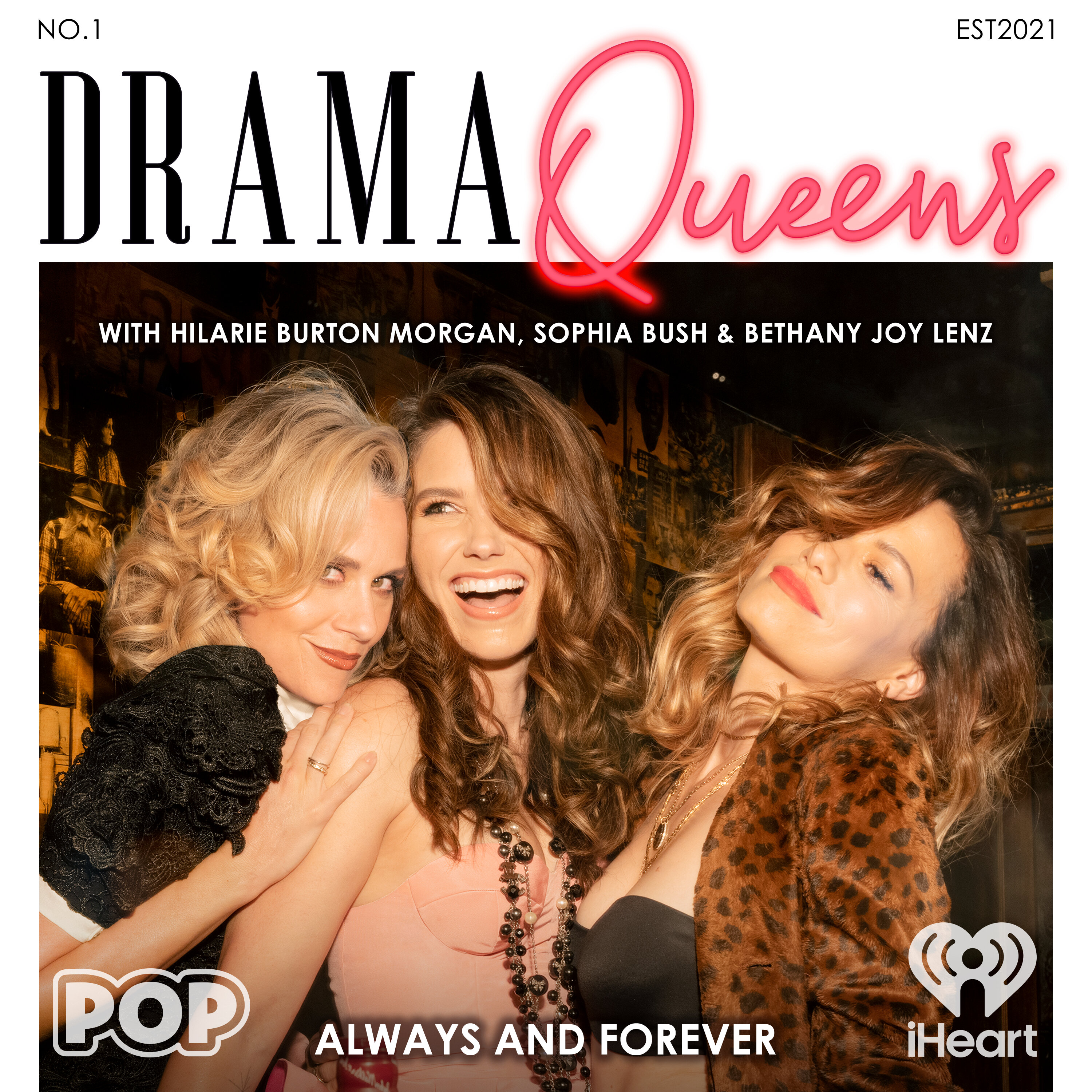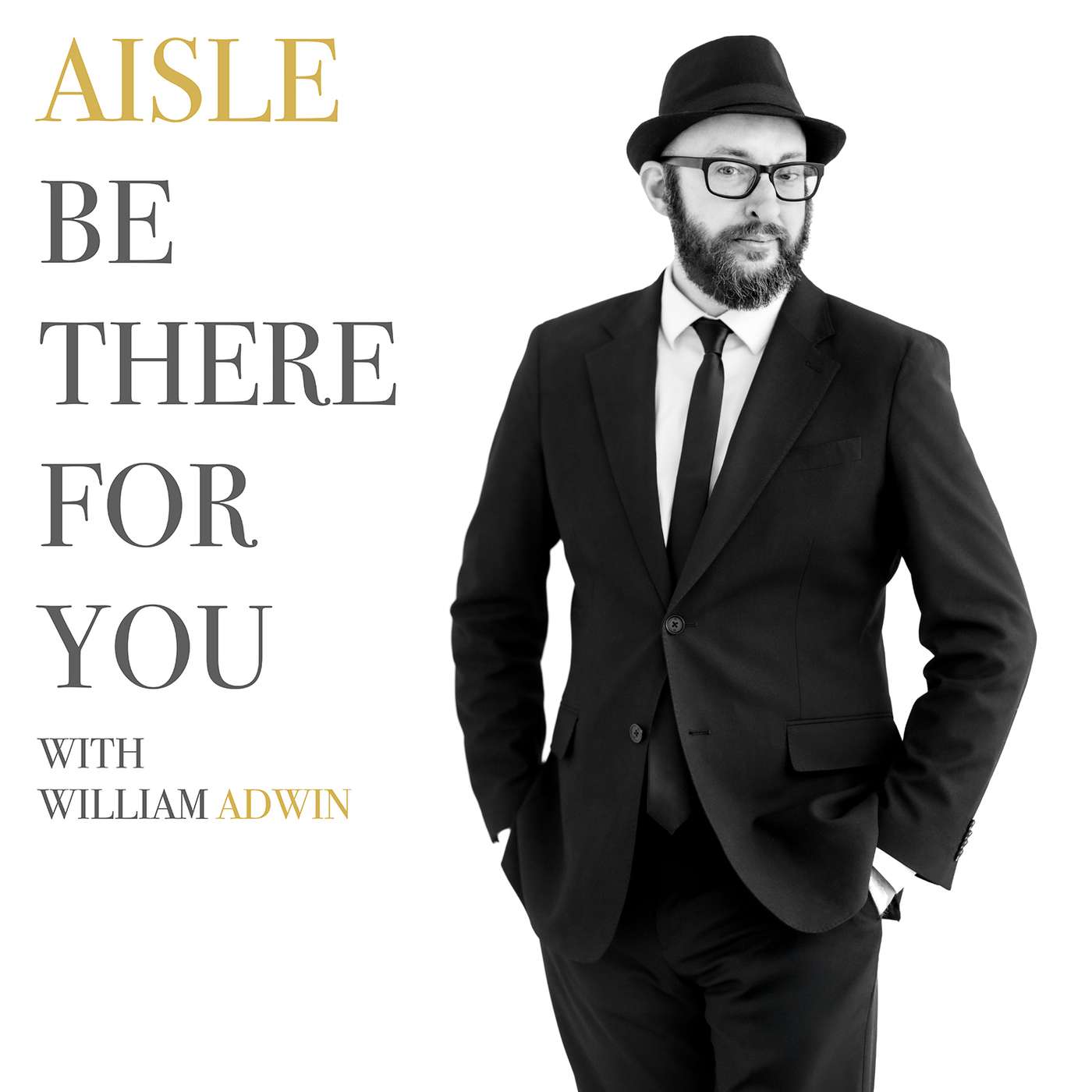.png)
The Wedding Where...
Join me, Amanda, owner of Officiating by Amanda, as I share stories of weddings I've officiated and lessons I've learned, advice for the dating, engaged or married, reactions to wedding ceremonies in movies and TV shows, special guests from the wedding industry sharing their stories, behind the scenes interviews with some of my couples, and the answers to your questions. With 10 years under my belt, I've got many, many tales to tell!
The Wedding Where...
The Bride Denied the Groom Cake featuring Verlyn Tarlton
Send me a message or any questions!
Verlyn Tarlton returns to share insights from her work as a pre-marriage counselor, including a revealing wedding story where a bride's disrespectful cake-cutting behavior foreshadowed their eventual divorce, and three key pieces of advice for couples planning to marry.
• Spend more time planning your marriage than your wedding—many couples invest more energy in selecting signature drinks than in their vows
• Communication with comprehension is key rather than just communication alone—listen to understand, not to defend or deflect
• When conflict arises, don't just apologize; ask "How can I make it right?"
• Small behaviors during weddings can reveal deeper relationship dynamics—"how you do one thing is how you do everything"
• How we treat our spouse can be viewed as a precursor to how we might treat children or others
• Learning to listen for understanding rather than preparing responses improves communication dramatically
• Being willing to find resolution without "being wrong" helps couples move forward constructively
Find Verlin on Instagram at before_you_do, on Apple and Spotify podcasts at "Before You Do," on Facebook as "Podcaster-Author Verlyn Tarlton," and at verlyntarlton.com.
Thank you for sharing the podcast with others who may enjoy it! Share your funny wedding stories with me at theweddingwherepodcast@gmail.com. Any links referenced are on linktree.
Welcome to the Wedding Where with officiating by Amanda. Welcome back to the Wedding where we are picking up with our wonderful interview with Verlyn. I highly recommend that, if you don't know what I'm talking about, you listen to part one now for all of the insights from fellow podcaster and author, pre-marriage counselor Verlyn Tarlton, and all the advice that she has to give for couples before they say I do. Our last episode we dived in a lot on some of those topics having those conversations, considering having those conversations with a third party person and this week's episode we have a very fun the Wedding Where story told by Verlyn, as well as three really key tips that she would recommend any couple consider. So let's get back into it.
Amanda:As you know, this podcast is the Wedding where and we typically tell stories. I tell stories of the wedding where something happened, some funny, some really heartfelt. We recently had one out of the Wedding when I Cried really great quote that we found from the bride's deceased father came into play and you know how do you balance out emotions. So not all of it's scandalous. But I wanted to ask you do you have a wedding where story? If so, what happened and from your perspective, what are Some insights that you kind of take from it.
Verlyn Tarlton:I do have a wedding where, first of all, it was absolutely beautiful. We were on a boat and we were. It was a beautiful, it was the perfect day to be on a boat and to be outside and all the the vows and everything took place outside. It was really beautiful. And then the reception was downstairs in the boat. It was a boat that went from one end of the city to the other and it was just really beautiful. Everything was going really well. And this is my husband's friend. I only knew the bride by face. We had no relationship or anything like that, but my husband and his friend. So that's the backstory. And we were at the reception part and you know they have this the part where each person after they cut the cake, you know everybody's looking intently. You know all eyes on the bride and the groom of course You've got a camera there or a videographer everything exactly.
Verlyn Tarlton:And so they, they cut the cake and the husband or the groom, you know, put the fork in the cake and you know, she opened her mouth and he fed her like oh, yeah, yeah, yeah. And so then it was her like oh, yeah, yeah, yeah. And so then it was her turn and she had the cake on the fork and he went to open his mouth and she moved it right, she moved it away from like a fake out, for lack of a better word. So he was just kind of stuck, you know, and he closed his mouth and again you're talking video and camera and all eyes right, and it was not a small wedding, it was a couple of hundred people, and so at first it was like everybody was, oh okay, you know, that's kind of funny and ha ha ha.
Verlyn Tarlton:Yeah, you know, that's, that's different. That was, I was like, yeah, this is different, I had never seen that before. And so then it was like, okay, we settled down, got the fort and then he opened his mouth and she did it a second time. And it was like we were like, oh, okay, and I promise you, I guess we thought it was over and she did it a third time and when that happened I said to myself this is not going to end well.
Verlyn Tarlton:I wasn't thinking about the day, but I'm saying in my mind just that whole. I mean the first time was enough For me. I didn't even think that was funny, but it was like everybody has a different sense of humor and so no judgment, right. I was like, okay, that was funny, oh, let's go ahead. And the second time was like are you kidding me? But the third time was like now we're in a space almost of humiliation and embarrassment. You know, everybody was. I think we didn't know how to react because it wasn't funny anymore. It was just awkward, you know. But we wanted to. I guess, for the people who love the groom, we just wanted to play it off and make him feel comfortable and not feel embarrassed and not feel ashamed. And so in my mind I just remember thinking this is not a good sign. Like, if this is funny to her and this is in front of everybody, to me it showed a bit of a disregard for his feelings and how he looked, like that was something. If you thought that was funny, do that amongst yourselves. You know practical jokes, you know live it up, laugh it up. But in that space where I mean it's not like it was so serious, like it was a funeral, but it is a sacred time, you know it's a sacred time and, like you said, the video, the camera and all these people are looking and it was just so inappropriate and unfortunately.
Verlyn Tarlton:But I won't say I have necessarily, I do have a good amount of insight. I won't say I have necessarily, I do have a good amount of insight. I am the kind of person and I used to not like it because I felt like I was negative. Right, I could see something and be like, nope, that's not a good sign, and I could literally feel that and later on it would pan out. And I guess I feel the same way about good stuff. I don't know why the not so good stuff stands out. But I remember saying this is not a good sign. I don't think they're going to make it In my mind. I would never speak that out loud, never. But I do say I did say in my mind this is not a good sign. I don't think they're going to make it.
Verlyn Tarlton:You know this, just that act alone and it seemed really ridiculous that I would think just from that one thing, not knowing any history, not living with them, but it's just a feeling I got and unfortunately they did. They went through a terrible, terrible, fighting divorce. It was just awful, but that one act was a precursor to how the marriage went. I tell my children all the time, and my husband, but the children especially, in my opinion, how you do one thing is how you do everything. And so that disregard, which I thought disrespect, that was the whole rest of the wedding and it was a very ugly, challenging divorce. So yeah, I had a wedding where the bride was just, you know, disregarding and just really made the groom look silly and they did not last long at all.
Amanda:And almost a wedding where you could have put an egg timer on the relationship. You could have written it. You know, not verbally, but in your own head relationship you could have written it. You know, not verbally but in your own head divorce eminent, and I think that that does speak to a fair amount of disregard. But also, you know who in their right mind withholds cake from somebody else. Come on, if I was a guest at a wedding, I'd be like wait, if she's not going to give him cake, is she going to give all the rest of us cake? I want my cake and I had a couple once say to me you should treat, not treat your spouse, but look at the relationship that you build with your spouse as a precursor to the relationships that you would build with kids. Again, if they fall, do you laugh or do you say, oh my gosh, are you okay?
Amanda:How you act around adults, teenagers on up to the elderly, how you treat your parents, can be looked at as a precursor to how you'd be with kids. And as you're saying like, oh, she went in to feed him, I think of like moms with the spoon, here comes the airplane. If you're doing that in a moment that's being photographed and videoed. You do it for laughs with your husband. You know, I would hope you would never do that with kids. Oh, too slow. Oh, you missed it. I know that there are some dads that think you know stuff, like that's funny, but certainly as a mom it's like, wait right, if I wouldn't think that this would be okay and certainly put yourself in the shoes of if this was your kid. Now take yourself out of the level. This is your kid getting married to somebody else. It's many road. Would you be okay if this was happening to your kid? And if you're not, why would you do it onto your spouse? We want to model good behavior, good relationships, so that we can set ourselves on the best foot forward, but also for the future, do as much as we can because there's so much out of our control to pave a nice pathway, and good, modeled relationships are the start of it.
Amanda:And I have certainly seen couples where, again, I get to be in the little back rooms with the groomsmen and the bride and everyone before they march out, before the cameras are really on them, before everyone's seen them, and there are some signs I'll see sometimes of you know the groom saying, ah, it's her wedding to ruin. Or you know, dude, this is half your day too. Like what? What do you mean? It's her wedding to ruin. Or you know the bride just getting so upset with the flower girl, the ring bearer, and you know, oh, we never, we never should have had kids. You know, and I know that the second they walk out of those doors they're to have the smiles on. They're going to, you know, and in their day these are blimps. They're never going to remember them. But right for me.
Amanda:I pick up those little pieces and I don't say it out loud, but I also catalog a little bit of it. Wouldn't surprise me if I don't wish it. I don't wish it, I don't hope it. You never are saying this better under the divorce. But I just go.
Amanda:You know, if I do a little research before I send their happy one-year anniversary email, it might be smart of me. I don't want to open any wounds. So if I do a little Facebook stalking and go, okay, I see that that is not going well, I'm going to not send that email. It's just something I keep a little track of. So I know that we're going to run a quick on time here. This is probably already going to be a two-parter. Let me plug that in right now. Stay tuned for part two. But from all of your experience, all your work, do you have some advice, do you have some insight? Of all the things you've told couples of you know, think about before you do what would you say are maybe the top three, and I know you had a list of 99. I'm sure you've come up with a far longer list, but what do you got as some of your key ones?
Verlyn Tarlton:Okay, well, the first one we've already discussed sort of, and that was spend more time planning your marriage than you do your wedding, so I won't revisit that, but that would definitely be number one.
Amanda:And I agree with that. I have so many couples who spend more time thinking about what the signature drink is and the seating chart. And again, I like the vote of confidence that they say, oh, just do whatever you want with the ceremony. But on the other end of that, seesaw is wait, you don't have a care at all about what you are saying, what you are vowing, what you are binding. And again, if you're doing everything on the same proportion, like you're eloping, so it's a sheet cake from Walmart.
Amanda:You gave the same thought process to it as you gave to the ceremony, as you gave to your dress, fine if it's all on a level tier. But when you spent many, many weeks searching for your wedding dress and you only perused an email and you said I like script option one, like those two things don't compare. And that also at times raises red flags because, right, you've spent more time planning the party than the heart, the core, I would say, of what is the start off of your marriage. And while I know a lot of couples totally go ear blind to what they hear within a ceremony, I send everybody the script afterwards. You can read the nice, pretty words. You can really bring them back into yourself. But to a similar part. You spent more time planning the wedding and the window dressing elements of the wedding than you did the key core parts that are the stepstones and the buildup in your marriage. Wow.
Verlyn Tarlton:Okay, and I also hit on number two already, and that is knowing that the wife is not the problem, the husband is not the problem, but that the problem is the problem, and to work together to focus on identifying the problem, clarifying it and then solving it together.
Verlyn Tarlton:The next thing and I think this is so, so key I'm going to explain first what I believe is a myth. Everyone says communication is key. Communication is key, and I used to say that all the time too. But after being married and after talking to many, many women about being married, communication is not key. Communication with comprehension is key. You can say the same thing 50 times. You can say it 50 different ways. If there is no comprehension, it doesn't matter how many times you say it. It doesn't matter how many times you say it, and in order to get comprehension, you have to be able to listen.
Verlyn Tarlton:Communication is thought of as very one-sided. I want to express myself, I want to say what I have to say. I want to talk, talk, talk. Both people want to talk, talk, talk, because I need to get this point across and I need you to understand what I'm saying and no one is listening to hear. There's a big difference. I can be in a restaurant with my husband and I can, you know, hear a conversation, but I'm not listening. But the person can just be really loud and I can hear they're saying, oh, I had to take my dog to sleep, but I'm not really listening. I can just hear it because they're loud. However, when my husband is talking, I'm listening to hear him because I'm interested in what he. I'm not interested in hearing about their dog or their drunk Uncle Bobo, I can just hear it right. But I'm listening because I want to understand and I'm listening in order to hear. So what I hear a lot is in communication, most people are listening to deflect, to defend or deny. They're not listening to understand, they're not listening to hear.
Verlyn Tarlton:I encourage ladies especially to listen to hear and to get understanding of what's being said, to not be anxious to speak, to not be anxious to get your point across, because when you're thinking and thinking, you're not listening. If the only thing I know I was famous, my husband could be saying something and the only thing I'm thinking I was famous, my husband could be saying something, and the only thing I'm thinking is hurry up and get through what you have to say so I can say something that makes sense. All right, I was like just hurry, hurry, hurry, before I forget my thought, you know, because what I was saying to me made a lot of sense and I wanted her to get it out. And in my mind you just yak, yak, yak. I was not listening to understand anything because I had already closed my mind and said this is ridiculous, you know. And so, as I have matured and spent time practicing silence, I'm learning to listen better, I'm learning to hear better, and so that is my thing communication with comprehension, which eventually, or firstly, should start with listening.
Verlyn Tarlton:We always think of communication as we're doing all the talking and no one's listening. Again, we don't listen to defend, to deflect or deny. We want to understand not only the words, but we want to understand the feeling behind the words. Lots of times, we just hear what's being said, but do we understand the feelings? Okay, well, I said this and it hurt him. We need to be able to hear that it hurt him, it made him feel invalidated, it made him feel emasculated. We need to be able to hear these things right, and then, even if we don't necessarily agree and maybe we don't even understand, if we respond from a place of compassion, right? Not well, let me tell you, since you said this, that's why I said that no, no, no, we're not wanting to deflect and we're not trying to defend that behavior, but if we are learning to listen again with compassion, we can respond in compassion. And the thing. If you want to take it to another level, this is something I tell my children, I tell the ladies too. After you hear something and you get understanding and the idea is I felt disrespected, I felt anything that makes a person feel the way they don't want to feel right.
Verlyn Tarlton:Ask how can I make it right? How can I make it right? How often do we ask that we just apologize? I apologize, I didn't mean such and such. I apologize, I'm not going to do it again. But what about? How can I make it right? What I have learned in my experience when you can humbly ask, you know, for someone to forgive you or apologize, and then you say, how can I make it right? It speaks volumes. It can disarm anger, it can disarm the hurt, it can disarm contention, because this person says, okay, not only did she hear me, not only did he hear me, because, face it, everybody wants to be heard, but they understand, and now they're going to actually put forth effort to try to make this right. That is advice that is invaluable, because people, we don't think about that often. So I apologize. I apologize, kissy face, but no, how can I make this right? To me, it takes it to another level of communication and comprehension.
Amanda:So yeah, I'm big on that. I had my couple yesterday as you were saying this I was remembering in their vows I believe it was the groom had said I will continue to acknowledge that the things that are hard for me to hear are also hard for you to say and appreciate that you said them Like let's not shy away. You know, if it does hurt me, if it stings me, I got to at least take a breath and acknowledge it like wow, it was hard for you to bring that to the surface and to come in to say that.
Amanda:I thought that that was absolutely beautiful. Because that is it's a key, key bit and we listening for comprehension, listening for learning, listening for understanding all different types that you have to bring in, because listening to respond is just surface level and you're right, we turn our brains totally off to it. I myself have to find the right way to word it because I think sometimes I take a sharp tone with it. But if I find myself repeating things with my husband or again revisiting a a conversation, I have to find a better way of kind of pausing and saying what did you hear me say? I said it pretty good right there, but I think a lot of times it comes out of a what is it you think? I said with a little sharpness to it, but again asking I'm a very big, each one teach one kind of person. So I like to listen for the, for the learning of it, because if I can learn it, bring it in, then I can teach someone else it. So, bringing it in and asking of someone else, like hey, I know I just taught you, two plus two equals four, or at least that's what I thought I said what did you pick up? And and they go. Oh well, you said it has to equal four, so I did three plus one.
Amanda:Ah, I see here and sometimes that helps to clear up a lot of things of how did we get to this end turn where we aren't meshing together properly? Did I use a different word? You know I'm very clear at times. I don't like to say I'm wrong. I never like to say I'm wrong. I can say I'm mistaken, I can say I'm incorrect. Wrong just feels weird. So again, where were we misaligned in our words and our understanding? And how do we get better? How do we reframe it? My husband and I just had one on trains. He's like I like trains. I'm like I like old trains. He goes what do you mean? I'm like I don't consider Amtrak to be a train. I consider locomotives to be trains. He goes no, amtrak's a train. I'm like let's agree or disagree here, sir saying sorry and apologizing for the words that we said.
Amanda:We said them and we shouldn't just blank it over. You know, oh, okay, I take it back. Kissy face like it's all better now. But you know, having the werewolf all go, okay, you know, I did say you did counter, or you came with this explanation and kind of acknowledging you know what. I can agree to that.
Amanda:The problem is resolved Like not leaving the tab open per se. If things have gotten resolved out, I don't want to take it back. I'm not. Oh, nope, my bad, my bad, I'm sorry, nope, hey, okay, I'm glad that you were able to bring this bit of information forward. I'm glad that we've talked this out. Tie it up with a bow, let's put it to bed. I'm not saying I was wrong. I'm saying you brought me good factual information. I'm saying we were able to come to a resolution and we are good and don't be afraid to kind of. You know you're not backing down from your position, you're not having to admit that you were wrong. You're saying you were able to move forward with the new perspective given, with the new communication that you listened to and understood, to be able to move your spacing forward. Like I did have to acknowledge that Amtrak is a type of train. It is not my preferred method of calling it a train.
Amanda:I was not wrong, but we like trains. So amazing and wonderful insights. I'm going to have all the links in the link tree and everything, but will you just let the people know where they can find you and how they can follow along to the wonderful work that you're doing and your great podcast.
Verlyn Tarlton:Absolutely, and I have to look at one of these because I tend to leave off something. Instagram, it's before underscore, you underscore, do All right. And then on Spotify and Apple it's before you do. If you just type those in before you do all one word, I guess I never look myself up, but before you do I listen, just when I do the recordings, you know, but just to look myself up. So hopefully that works before you do on Apple or Spotify, and then on Facebook I am Podcaster-Author, not the boy's name, the man's name, but the writer, a-u-t-h-o-r Verlyn Tarlton. So Facebook is podcaster-author Verlyn Tarlton, and that's it for now. I'm on other things but I'm not even active, so I won't even waste. I'm still trying to get my daughter how to work TikTok. Show me how to work TikTok. I have not gotten it. It just looks crazy Every time I even open it. I'm just like you know what. Never mind.
Amanda:I always press wrong buttons and then it adds in someone else's like audio over top of the audio and I'm like no, I have original audio, I need it to be me. Yeah, I did just find you Spotify. You know, if you turn to Google as all one word before you space. Spotify in Google. Ok, pop that up. Ok same thing with Apple.
Verlyn Tarlton:OK, great, great. I know that Instagram is. I have to remember, before underscore, you underscore, do so, and that's it and my website. I have a website which is my name, verlyn Tarlton dot com V-E-R-L-Y-N-T-A-R-L-T-O-Ncom.
Amanda:And we'll get those linked over and have them live, We'll have them in show notes and we'll have them on Great Well. So hopefully, anyone who's got more questions or inquiries or is like, well wait, I wish I knew more about this, or I bet no one has brought this up before to Verlin Well, go ahead, hit her up, let her know all of the great things that you would also recommend that people know before they do, before you do, before any of us do. Thank you so, so much for joining me and being on today and for those out there listening. Drop a line, drop a comment. Let us know what other advice you'd add in. Is there something that someone once gave you advice on? Because we all know that we all talk to our moms and our parents, our sisters, our brothers, our friends especially those who have already been through the marriage process to get their take, to make sure we aren't alone, that, yeah, my spouse also leaves time on the microwave, or that my husband also does not hear a single word that comes out of my mouth. Write him a letter, Right? What other little bits were you given advice on before you did your walk down the aisle? And maybe they'll end up, you know, between Verlin and I in some other way, shape and form on our podcast.
Amanda:Yes, Thank you for listening to the Wedding Where with Officiating by Amanda. I hope you enjoyed today's episode and found some inspiration or insight for your own special day. This podcast is hosted on Buzzsprout and can be found on all major platforms. If you haven't already, please subscribe, like, comment and share to help us reach even more listeners who might laugh a little at the WeddingWare. For the links referenced in the show, visit Linktree at Officiating by Amanda. You can also follow the business on Facebook, WeddingWire and the Knot to stay up to date on everything going on. If you have a question you'd like me to answer on the podcast, just send an email to theweddingwearpodcast at gmailcom, and if you're ready to inquire about officiating services for your own big day, you can reach me at officiatingbyamanda at gmailcom. Thank you so much for tuning in and until next time. This has been Amanda.
Podcasts we love
Check out these other fine podcasts recommended by us, not an algorithm.

Engage with Jamie Wolfer: Wedding Planning Podcast
Jamie Wolfer
The Union Podcast - hosted by Jamie Wolfer
Jamie Wolfer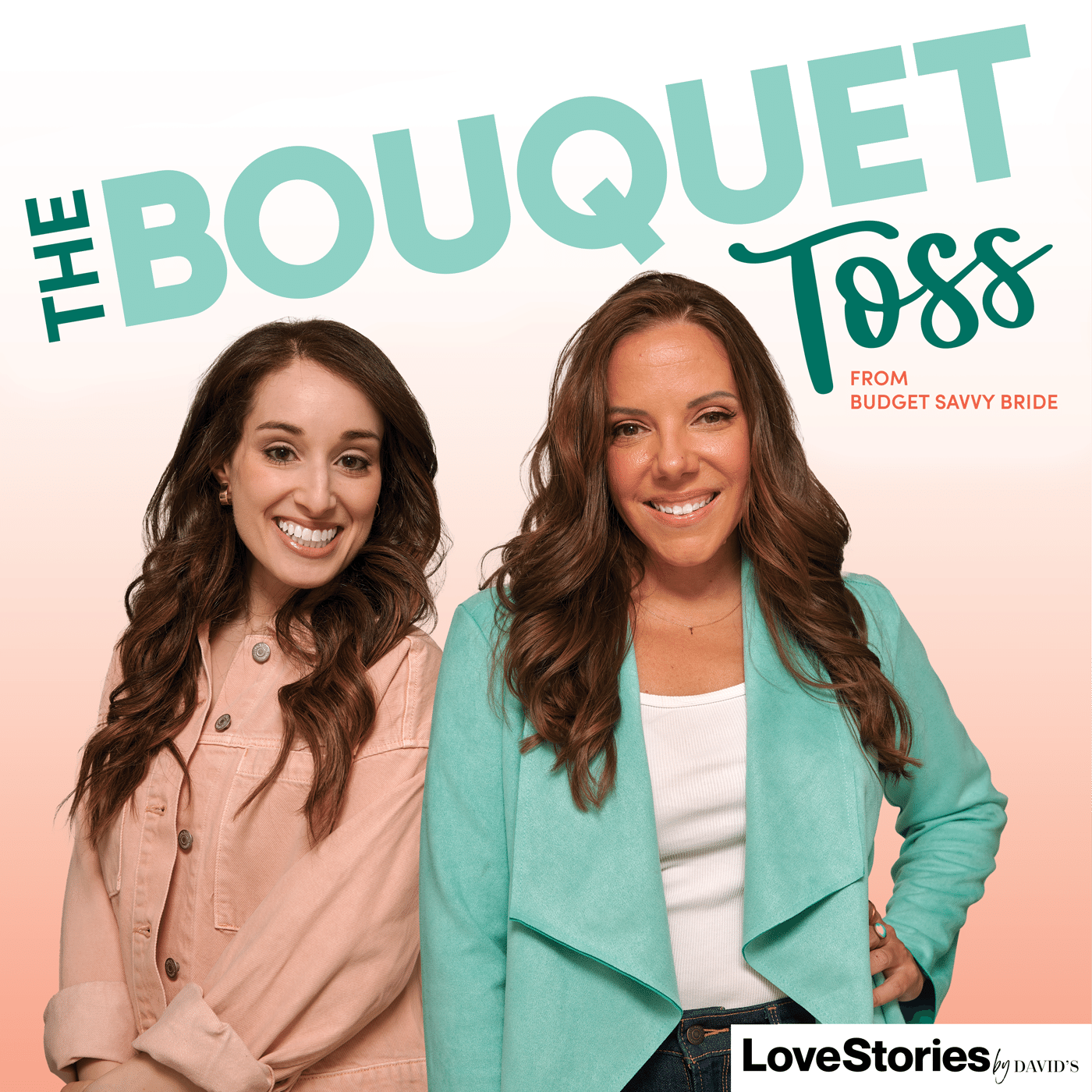
The Bouquet Toss - A Wedding Planning Podcast
The Budget Savvy Bride
History Tea Time
Lindsay Holiday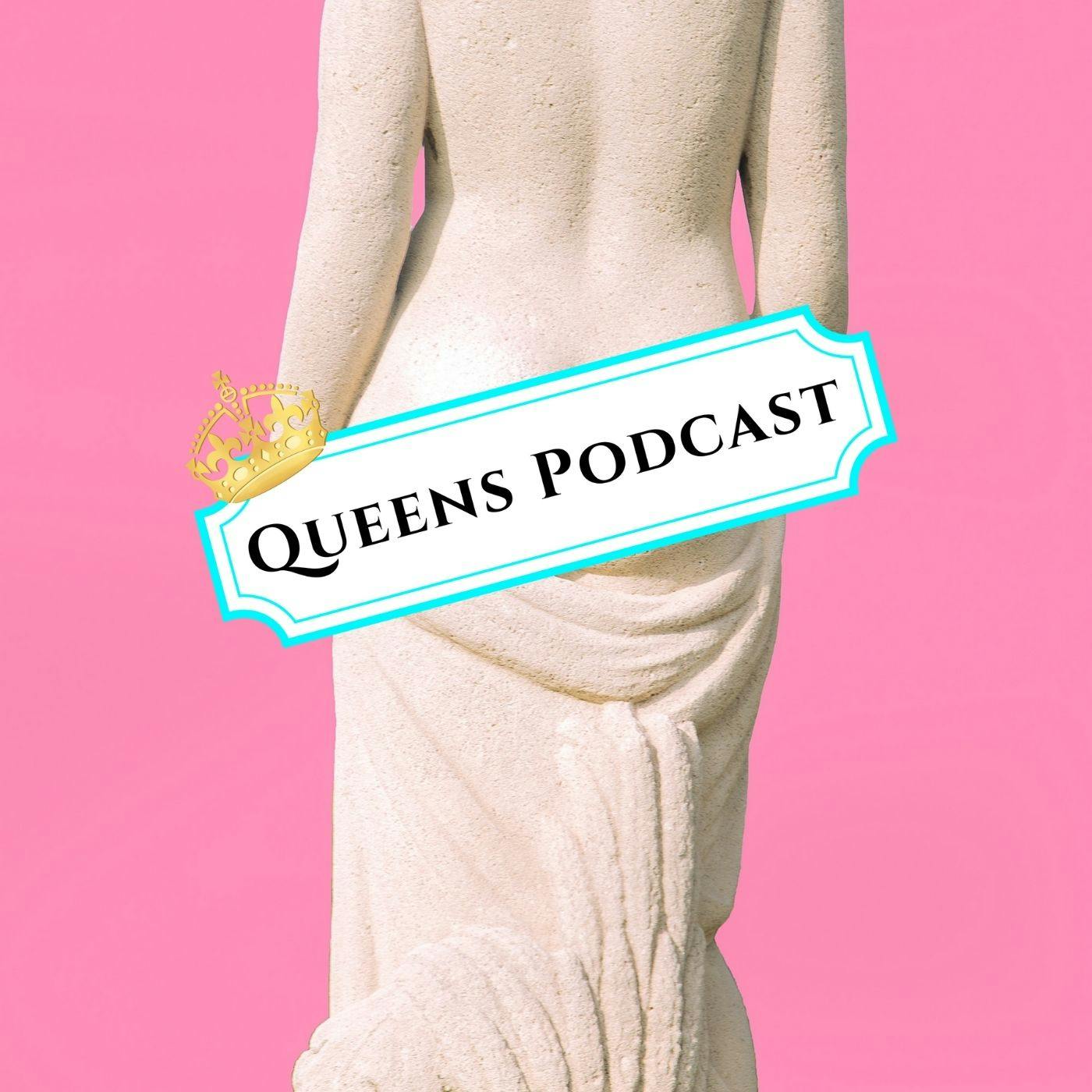
Queens Podcast
Queens Podcast
Office Ladies
Audacy & Jenna Fischer and Angela Kinsey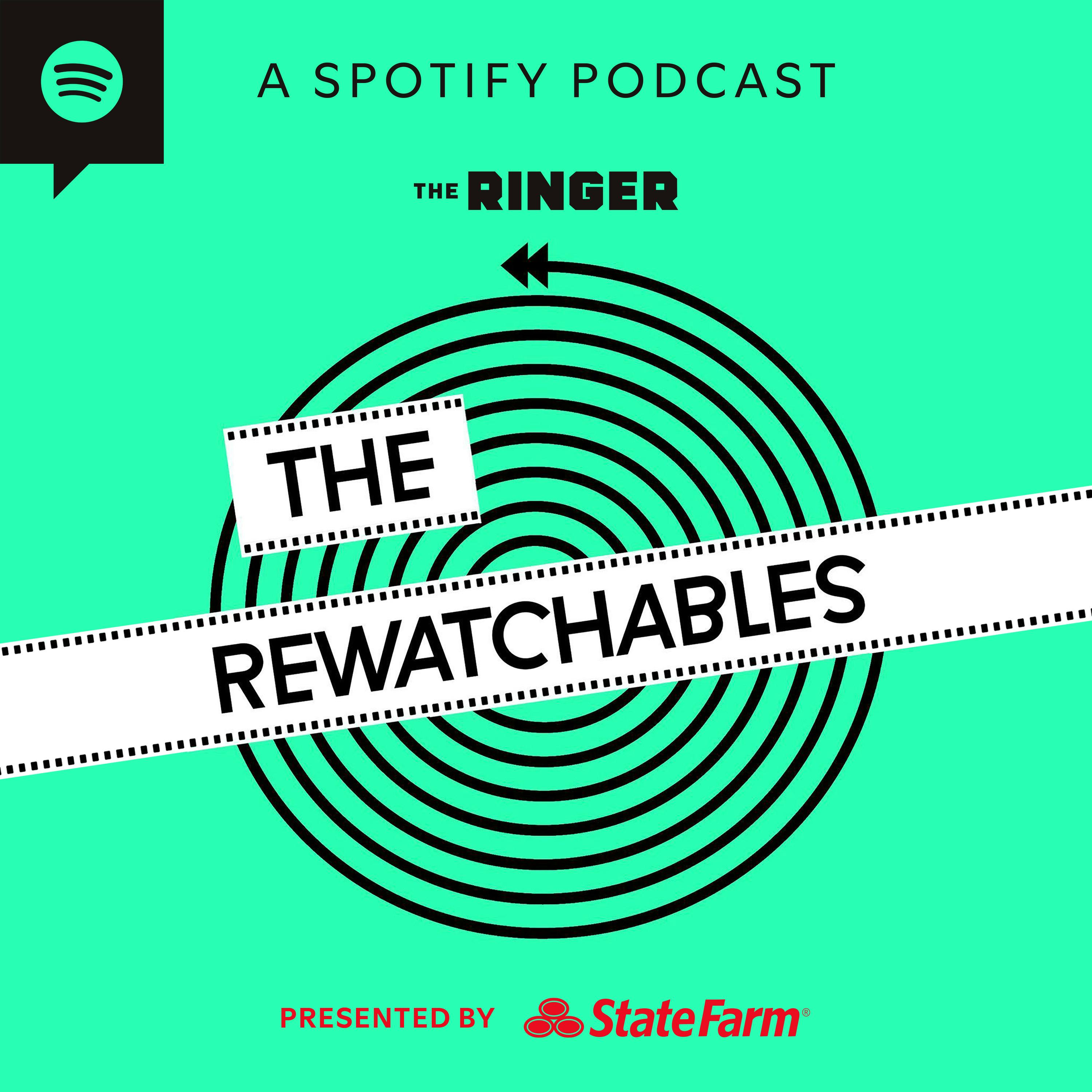
The Rewatchables
The Ringer
This is History: A Dynasty to Die For
Sony Music Entertainment